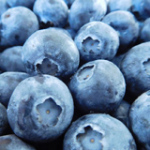Blog

Got Milk? Debunking myths about milk…
In honor of June being National Dairy Month, I’ve partnered with the California Milk Processors Board and “got milk?” to help dispel some of the health myths about milk, and to explain some of its significant health benefits.. The first nutrition a mammal of any kind receives is milk from the mother. This perfect food contains critical nutrients, including vitamins, proteins, fats, immunoglobulins (true ‘immune boosters’), and hydration.
After the first birthday, humans traditionally transition to cow’s milk, which offers similar beneficial nutrients such as vitamins, minerals, proteins, fats, as well as hydration and calories. However, over the past few years, milk has been getting a bad rap– with claims that it causes everything from colds and ear infections to allergies, obesity, and even diabetes.
Below are a few milk myths we can bust:
1.”Drinking milk can lead to more respiratory infections, including coughs and ear infections.” False! There is no evidence that this is the case. The only specific time that this may occur is if a child is taking a bottle or sippy cup of milk with him in the bed or crib, and drinking milk throughout the night while lying flat. But this practice is not good for their teeth, gums, or digestion either. Ideally, no beverage should be taken to bed. If the child absolutely needs to drink throughout the night, water is the only healthy choice. But regular (upright) drinking of milk on a regular basis during waking hours has no direct link to ear infections, coughs, or colds.
2. “Consuming milk or other dairy products slows the healing of a sore throat or the healing after tonsillectomy.” This is absolutely not true. One of the fun side-benefits of kids getting their tonsils out is that they get to eat lots of ice cream. Yes, this may lead to a bit more thickened saliva, but it most definitely doesn’t slow the healing. In fact, the more a child eats and drinks anything soft, the more quickly he or she will recover.
3. “Dairy, especially full-fat milk, is bad for your heart.” Wrong again. Actually, the complete opposite is true. The PURE (Prospective Urban Rural Epidemiology) study, recently published in The Lancet, looked at close to 150,000 adults from 21 countries and 5 continents with respect to dairy intake and heart disease over a nine-year period. They found that subjects who consumed greater than two servings per day of dairy products versus those who consumed no dairy products had lower risk of heart-related disease, as well as a lower risk of death overall. In particular, milk, of all dairy products resulted in the lowest risks in this study. Interestingly, subjects who consumed whole-fat milk were the healthiest.
4. “I have lactose intolerance, so it must be a milk allergy” Not so. Lactase is an enzyme that helps break down one of the naturally occurring sugars in milk (lactose) during digestion. Some people have lower amounts of this, but it’s often not an ‘all or none’ situation. And there are easy ways around this— as it’s usually ‘dose-dependent,’ drinking a little less may be a simple answer. There are also lactose-free milk products, or tablets to ingest which contain lactase, making milk digestion easier. But this is NOT an allergy. True milk allergies, with vomiting, rashes, and even anaphylaxis, affect less than one percent of the adult population.
5. “Milk makes me gain weight, and I hear it causes diabetes.” No again. In the 1970’s, when the concerns about fat content in foods as a source of obesity was recognized, fat content in milk and dairy products was cut in half (“low-fat”), then cut in half again (“skim”), and finally removed altogether (non-fat). To keep the taste, sugars were added. We now know that so much of the rise of obesity is partly due to increased processed foods/fast foods/fried foods/convenience foods, and decreased exercise and activity, even beginning in childhood. Drinking milk is filling, and has no direct correlation with weight gain. A recent large meta-analysis study, looking at up to 500,000 adults ranging from ages 20 to 88 years, found that higher amounts of dairy consumption correlated to lower incidence of type 2 diabetes.This was most notable for total dairy product consumption, low-fat dairy consumption, and yogurt. Overall, the higher amount of dairy product consumed correlated to lower and lower risks of type 2 diabetes.
So many myths about milk and dairy products continue to be spread, but the facts are that milk has more health benefits than most of us know.
https://www.ncbi.nlm.nih.gov/pubmed/27882862
https://www.ncbi.nlm.nih.gov/pubmed/31089742
https://www.ncbi.nlm.nih.gov/pubmed/31089734
https://www.ncbi.nlm.nih.gov/pubmed/30217460








